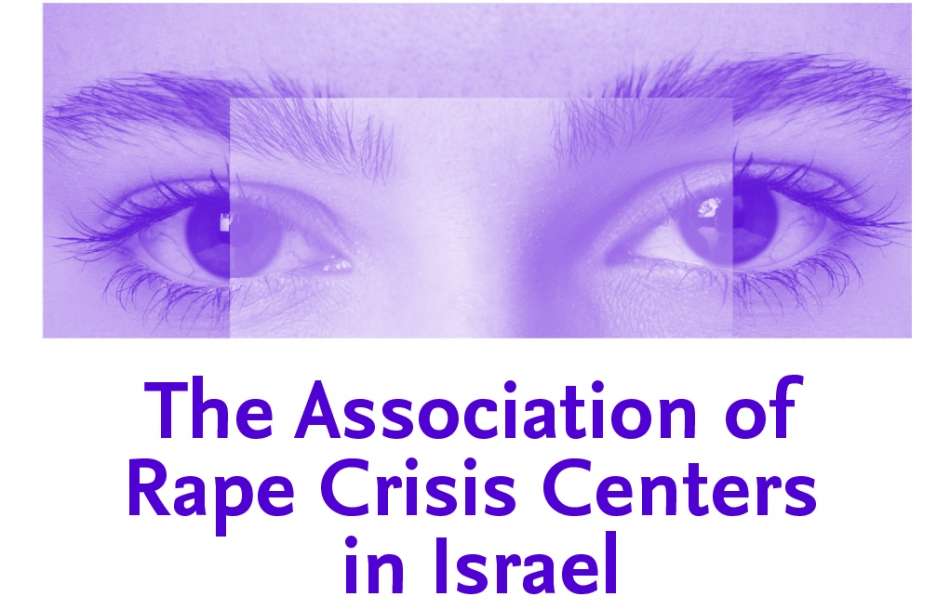According to the CDC 1 in 4 men and 1 in 3 women report having experienced physical sexual violence. These numbers are likely lower than the actual number of victims out there because sexual abuse is under reported and these numbers only include 1 of the 5 types of sexual abuse, physical sexual violence. Our office helps people overcome the trauma of sexual abuse and many of those we work with have not reported the abuse and are reluctant to do so. Understanding that abuse is real even if no physical contact is made is important for a journey of recovery to begin.
Verbal
Verbal Sexual Abuse includes the use of spoken or written words to express, evoke, or imply sexual content. Verbal sexual abuse is prevalent and can be experienced in social settings, at work, and at home. Crude humor is often given a pass in our culture even though it does real harm. It can be hard to deal with because, we might feel that there is a violation but, be fearful of facing social or relational consequences for speaking up. Examples of verbal sexual abuse include; sexual jokes, teasing about physical characteristics, graphic sexual descriptions, name calling, comments on physical development, solicitation, unwanted romantic advances, sexting, and stalking with phone calls or other messages, etc.
Covert
Covert Sexual Abuse can happen without your knowledge. This includes being observed, followed, photographed, social media stalking, sexual cyber-harassment. This form of abuse is characterized by attempts by the perpetrator to get some form of sexual satisfaction from the victim without their knowledge.
Visual
Our culture is inundated with sexually charged or sexually explicit images. Being exposed to unwanted sexual content visually is sexual abuse. Some examples of Visual Sexual Abuse can include; unwanted or uninvited exposure to sexually explicit images, sexting/airdropping, exhibitionism/flashing, nudity or improper dress at home, and performing sexual acts while non-consenting individual are present.
Physical
Examples of Physical Sexual Abuse include non-consensual: touching, fondling, physical restraint, cornering, tickling, kissing, excessive cleaning of genitals, enemas, intercourse, sodomy, oral sex, licking, brushing up against, urinating on, invasion of privacy, stalking. The potential for sexual abuse is very much influenced by power differentials, so someone saying “Okay, fine.” or not saying, “No” does not mean sexual contact was consensual. This is because actions can be coerced without explicitly voicing a threat or possible consequence.
Ritualistic
Ritualistic Sexual Abuse is sexual abuse blended with some form of spirituality and ritual. In some cases of ritualistic sexual abuse, perpetrators encourage or attempt to justify their actions as an act of penance or worship, to the target of their abuse. This type of abuse also can include child marriage, incest rituals, genital mutilation, and chants or incantations during abuse.
FAQ’s
Q: Does sexual abuse have to involve physical contact?
A: No, sexual abuse can happen without being touched or even being in the same space as the abuser. Sexual abuses can include words spoken, sights seen, and acts done covertly, all without physical contact.
Q: What is a Trauma?
A: Trauma can be defined as an emotional response to an experience that is distressing or disturbing. With sexual trauma this often includes experiencing a “No choice, no voice” event. Experiencing something where there is a loss of control, coercion or pressure, a perceived helplessness.
Q: Can I heal from this?
A: Yes! If you have experienced something like this, you do not have to be stuck with trauma for the rest of your life. With advanced techniques like Accelerated Resolution Therapy and Eye Movement Desensitization and Reprocessing that help to heal the impact of those events, recovery is within reach. These new techniques limit your exposure to your memory of the past event in session and expedites the healing process. Therapist with these advanced techniques can really help you to process trauma without a high level of distress in recalling the memories. Sometimes, we are able to work with clients without them needing to retell the story until it no longer triggers intense emotions.
Hear more about this topic on our podcast The Reimagined Life: Episode 5: 5 Types of Sexual Abuse You May Not Be Aware Of (ft. Cristina Ally)
There are many different types of sexual assault. Below is a list of the various acts that are considered sexual assault and abuse, as well as a short description of some of the most common types of assault.
Sexual assault includes:
- Rape—sexual intercourse against a person’s will
- Forcible sodomy—anal or oral sex against a person’s will
- Forcible object penetration—penetrating someone’s vagina or anus, or causing that person to penetrate her or himself, against that person’s will
- Marital rape
- Unwanted sexual touching
- Sexual contact with minors, whether consensual or not
- Incest (Sexual intercourse or sexual intrusion between family members.)
- Any unwanted or coerced sexual contact
Other sexual crimes include:
- Sexual harassment
- Solicitation of minors through the Internet
- Possession of child pornography
What is ACQUAINTANCE rape?
Acquaintance rape occurs when someone you know or trust forces you to have sexual intercourse. The rapist can be a friend, family member, neighbor, or a co-worker. Acquaintance rape can happen on a first date, at a party or when you have been going out for a long time. It can happen in any relationship, including:
- Friends, classmates or co-workers
- Boyfriends and girlfriends
- Internet friends and contacts
- Teachers and students
- Coaches and athletes
- Religious leaders and parishioners
- Doctors and patients
Acquaintance rape is the most common type of sexual assault. Over 80 % of rapes are acquaintance rapes and more than 50 % of them happen on dates.
What is DRUG FACILITATED sexual assault?
This most often happens when you are at a party, club, or a social event and you are with people you know and don’t think you have any reason to fear. Someone secretly drops a drug such as roofies or ecstasy in your drink. When the drug dissolves, it is odorless. It may be colorless, or may leave a bluish colored residue, and it may also be tasteless. As you consume the drink, the drug takes effect. You may experience drowsiness, dizziness, confusion, lack of coordination, slurred speech, loss of inhibition, impaired judgment and reduced levels of consciousness. You are incapacitated and cannot escape, resist or even call out for help. Often, these drugs cause amnesia, and you cannot remember what happened and who assaulted you.
‘Roofies’ are not the only drug used in drug-facilitated sexual assaults. Alcohol is in fact the most commonly used drug to facilitate the perpetration of sexual assault. Just as with roofies, alcohol impairs your judgment, lowers inhibitions, and affects consciousness. In the eyes of the law, you cannot consent to have sex when you are under the influence of alcohol.
What is CHILD SEXUAL ABUSE?
Child sexual abuse is any sexual act with a child by a parent, an adult or someone who is older or more powerful than the child. It involves forcing, tricking, bribing, threatening or pressuring a child into sexual acts.
The abuse can be physical, verbal or emotional and includes such acts as sexual touching, exposing the child to pornography, taking pornographic pictures of the child, “peeping” at the child, exposing oneself to a child, and attempting/performing oral, anal, or vaginal penetration.
What is MARITAL RAPE?
Spousal or marital rape is the term used to describe sexual acts committed without a person’s consent and/or against a person’s will, when the perpetrator (attacker) is the woman’s husband or ex-husband (or a man’s wife or ex-wife). This type of rape is very underreported for a number of reasons; the women may fear the husband’s reaction, or she may fear the stigmatization and shame, as well as the potential loss of his or her children. For more insight into this type of rape, please refer to our section on relationship violence.
The importance of CONSENT!
Consent to any sexual activity is pivotal to the reduction and prevention of sexual assault and coercion.
Consent is a voluntary, sober, enthusiastic, informed, mutual, honest and verbal agreement. It is an active agreement and cannot be coerced. Consent is a process which must be asked for every step of the way; if you want to move to the next level of sexual intimacy, just ask! Consent is never implied and cannot be assumed, even in a relationship. Just because you are dating a person does not mean that you have natural permission to have sex with your partner. A PERSON WHO IS INTOXICATED CANNOT LEGALLY GIVE CONSENT. If you are too drunk to make decisions and communicate with your partner, you are too drunk to give consent. The absence of a “no” does not mean “yes”. both people should be involved in the decision to have sex!
Communication, respect and honesty make sex and relationships better. Asking for and getting consent shows that you have respect for both yourself and your partner. Positive views on sex and sexuality are empowering. The idea of consent helps to question traditional views about gender and sexuality and asking for it eliminates the entitlement that one partner may feel over the other. Neither your body nor your sexuality belongs to anyone else but you! And it is normal and healthy for women to expect to be included in the consent process.
You should ask for consent before you act! It is the responsibility of the person initiating sexual activity to obtain clear consent. If you are unsure if consent is given, ASK! And keep asking; giving consent ahead of time does not waive a person’s right to change their mind or say no later.
Consent is not just about getting a yes or no answer, but about understanding what a partner is feeling. Ask open-ended questions, and listen to and respect your partner’s response, whether you hear yes or no: “I’d really like to.. how does that sound to you?” “How does this feel?” “What would you like to do?”
(Information in this section taken from West Virginia Foundation for Rape Information and Services,www.fris.org)




